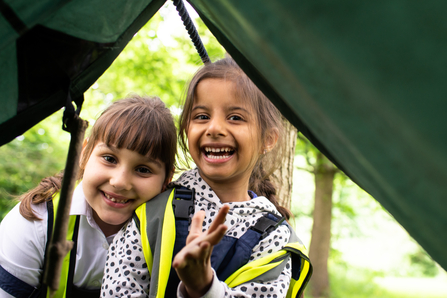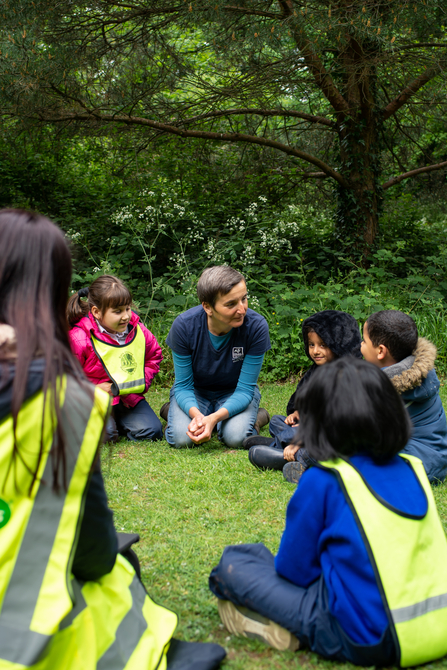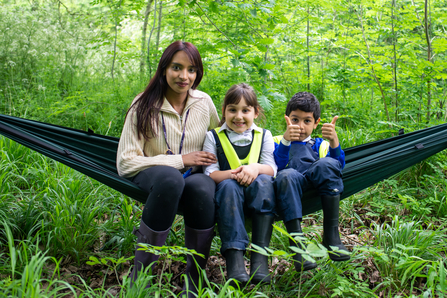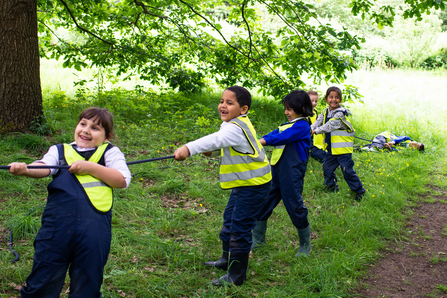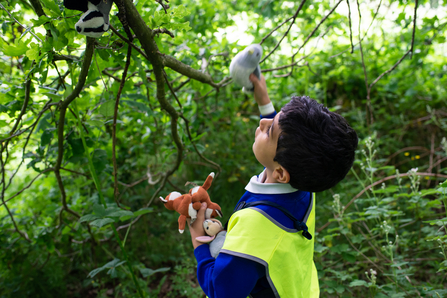Senior Education Officer Martha Rose recently had the privilege of visiting a Forest School session run by her colleague Sophie. Martha tells us about the session and the positive impact it has had on the children at Hazel Primary School in Leicester.
Sophie has been working with a group of 12 Year 1 children from Hazel Primary School in Leicester, delivering a 2 hour Forest School session with them every week for 9 weeks at Attenborough Arboretum, owned by the University of Leicester. Our programme of Forest School sessions with inner city children is made possible thanks to the generous support of players of People’s Postcode Lottery through our Wild Forest School project.
After immersing myself in the session and talking with Sophie, the teaching staff, volunteer Rowan and of course the children themselves, it’s obvious what a positive impact the Forest School has had.
Forest School aims to improve mental wellbeing, by developing self-esteem, boosting confidence and building resilience. We want children who take part in our sessions to be happier, healthier and more creative.


